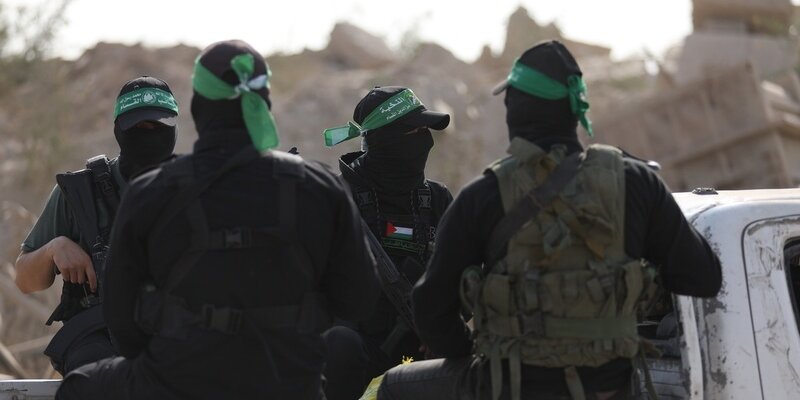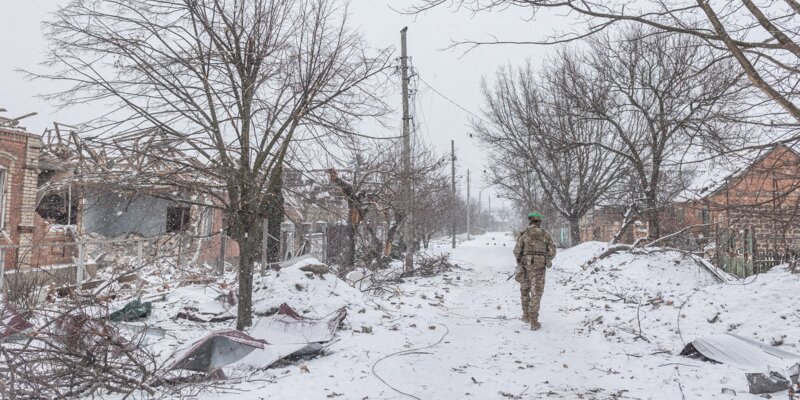Despite Change in Israeli Aid Policy, Doctors in Gaza Say Humanitarian Situation Still ‘Catastrophic’
Medical teams in Gaza say that the situation on the ground remains dire, despite a recent Israeli policy reversal and the opening of the Strip to more humanitarian aid. They told Shomrim about the food shortages that also affect, the dead and wounded who are brought from death-trap distribution centers and about the severe impact of the shortages on patients whose bodies simply can’t survive such difficult conditions
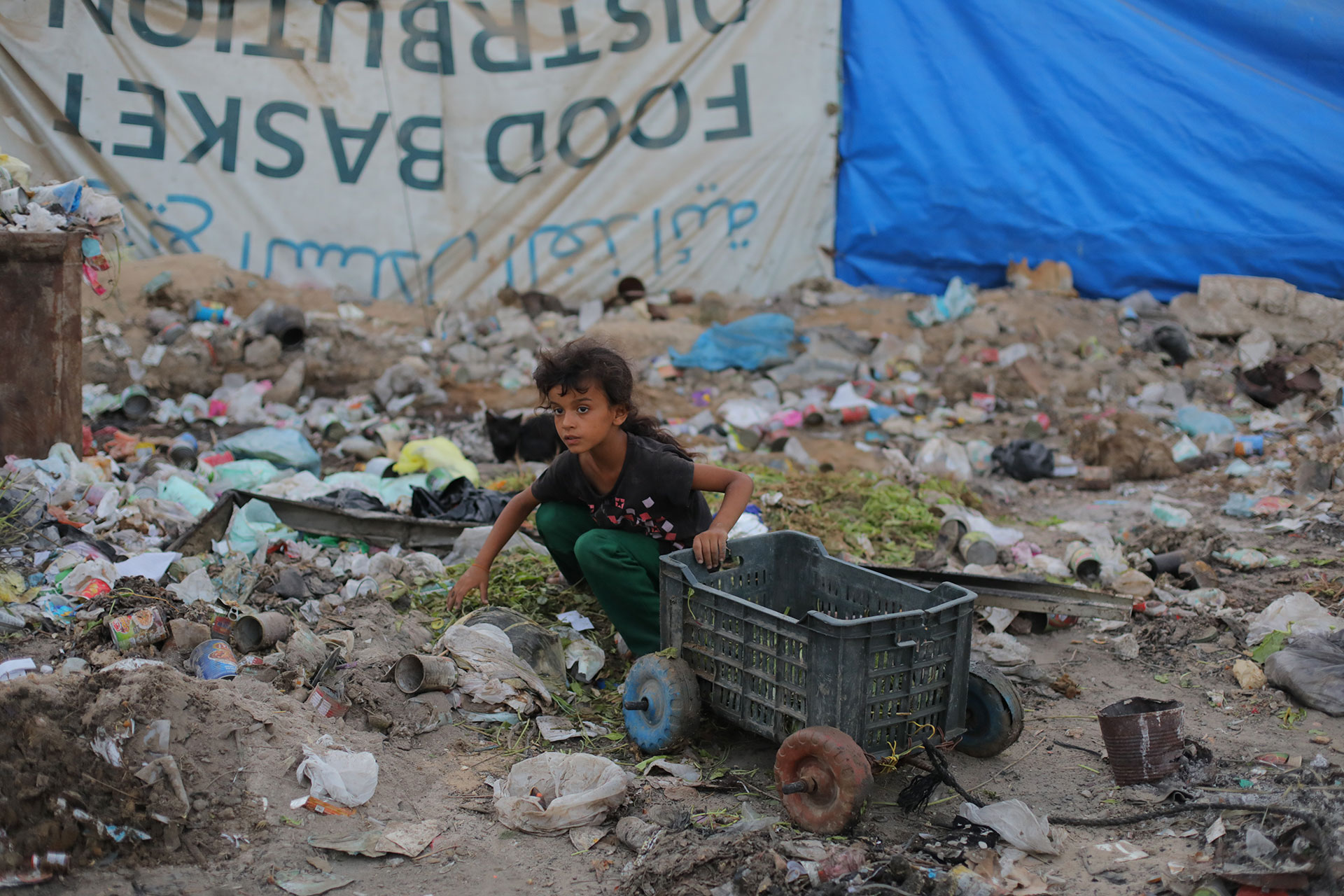

Medical teams in Gaza say that the situation on the ground remains dire, despite a recent Israeli policy reversal and the opening of the Strip to more humanitarian aid. They told Shomrim about the food shortages that also affect, the dead and wounded who are brought from death-trap distribution centers and about the severe impact of the shortages on patients whose bodies simply can’t survive such difficult conditions

Medical teams in Gaza say that the situation on the ground remains dire, despite a recent Israeli policy reversal and the opening of the Strip to more humanitarian aid. They told Shomrim about the food shortages that also affect, the dead and wounded who are brought from death-trap distribution centers and about the severe impact of the shortages on patients whose bodies simply can’t survive such difficult conditions
A girl looks for food in the leftovers of discarded lentils. Photo: Reuters

Daniel Dolev
July 31, 2025
Summary


Listen to a Dynamic Summary of the Article
Created using NotebookLM AI tool
Facing ever-intensifying international pressure, Israel announced earlier this week that it was reversing its policy on aid supplies entering the Gaza Strip, including a humanitarian cease-fire lasting several hours a day in certain areas, airdropping food and other aid, and increasing the number of international organizations’ aid trucks entering the territory. On the ground, however, medical teams say that the dire situation has not improved and there has been no significant easing of conditions.
In a conversation with Shomrim, Dr. Mohamed Fadlalla, an American physician who runs a field hospital established by Doctors Without Borders, described the dire situation he witnesses daily. “ It’s only been two days,” he says, “ and it seems like it hasn’t been enough yet.”
“ I will say that a couple of the main changes have been the airdrops [of aid by Israel and other countries, including Jordan and the United Arab Emirates], which have resulted in the opposite effect of causing casualties and injuries, causing riots at the scene of where these have dropped, so people being injured from that,” Fadlalla told Shomrim in a Zoom conversation on Tuesday. “ I know that there are trucks being allowed through, so this is a very welcome change. And really what needs to happen is huge numbers of trucks need to be let through at an adequate rate, and the distribution needs to be done in a way that minimizes chaos. With all that said, I do welcome the change.”
Nonetheless, Fadlalla stresses that “any move away from the [aid distribution] model that the Gaza Health Foundation has put together is a plus. There has been a huge number of casualties at these sites, who have been evacuated to every hospital in the area; we are working far beyond capacity, to a large extent because of these aid distribution sites and the large number of casualties caused by this model of distribution. It’s been proved beyond any reasonable doubt that they have served only to increase the number of casualties and increase the harm, rather than the good that’s come out of them.”
“Any move away from the [aid distribution] model that the Gaza Health Foundation has put together is a plus. There has been a huge number of casualties at these sites."
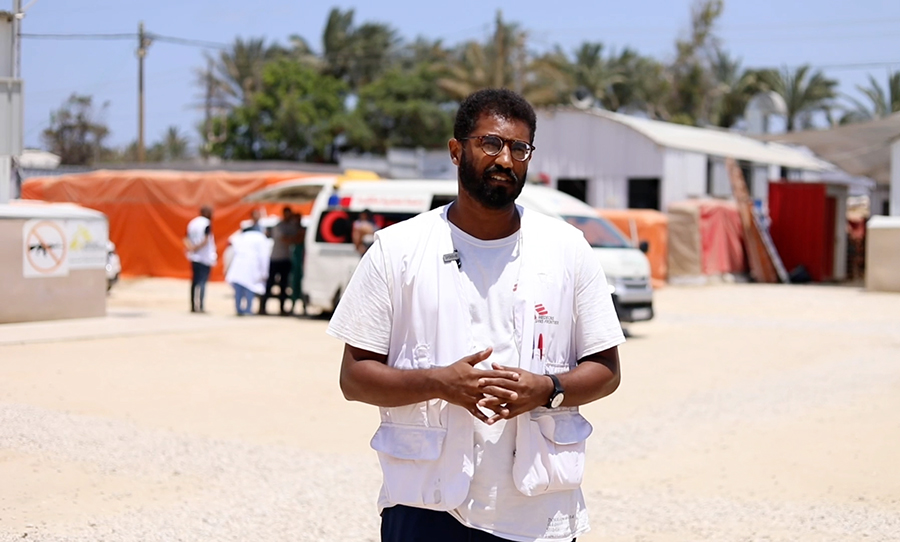
Fadlalla, 41, arrived in Gaza some six weeks ago. He has worked with Doctors Without Borders since 2020 and was previously sent by the organization to work in Sudan. Currently, he is the Managing Medical Doctor for a field hospital in the Deir Al Balah region of central Gaza. The difference between Gaza and other war zones, he says, is that “ your basic kind of necessities – coffee, sugar or tea – these are all scarce. Not only are what we can provide to the patients meager, but even our own ability to fuel ourselves is impacted. And you can see it from the staff working in these conditions for months.”
"People don’t eat meat," he continues, "but even protein in general is lacking. They survive on flour for bread, a bit of rice, lentils, or beans, but the diet is not balanced. Last week, I had two separate conversations with colleagues, where they were saying, ‘My wife made dinner and we’re eating, but my wife and I are pretending to eat just so the kids eat without being shy. After they get their fill, whatever’s left, we finish off.’ One said there was nothing left, and the other said they managed to eat just a little. There’s a shortage of protein, milk, and basic necessities.”
“Even when I was in Sudan, there was famine there as well. But there, at least, you could at get those things somehow. You go to the stores here and there’s nothing there to buy for your family and kids,” Fadlalla says. He hesitates to answer when asked whether he himself is eating, but, in the end, admits that he has lost 9 kilograms since arriving in Gaza. “ We finish our workday, we have our meal at home; the same thing that everybody’s eating. It was spaghetti, rice, some beans, and some eggplant. Sometimes there’s a little bread in the morning and maybe some cheese or something to put on it. We’re part of the context too, in a way,”
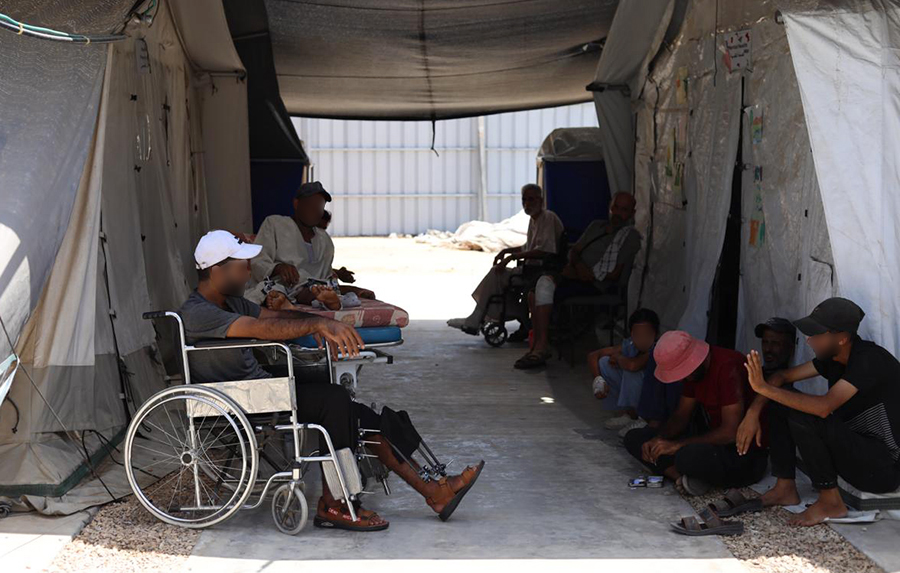
The difference between Gaza and other war zones, says Dr. Fadlalla, is that “ your basic kind of necessities – coffee, sugar or tea – these are all scarce. Even our own ability to fuel ourselves is impacted.”
‘Medical teams are hungry and so are their families’
Notwithstanding the personal distress, Fadlalla is keen to highlight the sacrifices the local medical teams are making: “I’ve been here six weeks; they’ve been in this for two years. They’re hungry, their families are hungry. The meal that our hospital can usually provide them is sometimes cut off, because all our food has to go to the patients. They’re in the same situation as the people. They’re living in tents. A lot of them have been displaced five, six, seven or even 10 times.”
The lack of food, he says, is also harming patients’ recovery. “The pictures of the malnourished children are the cases that go to the pediatric hospitals. As a trauma surgical hospital, we see the starvation and the malnutrition manifest in other ways. For example, when we open somebody up to repair their bowel, we find that there’s very poor wound healing. So, after a few days, they become sick again. When you’re starving, immunologically, you don’t mount the same kind of response as you would when you have a normal nutritional status.
“We’re managing huge numbers of surgical patients, who might have been able to heal their leg, [but] that will result in amputations because they’ve developed infections that they’re not able to heal these wounds. So we’re having a generation of people who might not have been handicapped, who now are at risk of being handicapped or permanently losing a limb. The toll is touching on all kinds of patient populations,” he adds with concern.
Food is not the only thing that is lacking in Gaza. According to Fadlalla, his field hospital is also lacking supplies, from fuel to medical equipment. “We are an orthopedic surgery hospital and right now, today, we’ve run out of external fixators, which are the fundamental tool that we use to fix these open fractures,” he says. “We now have cases here waiting for surgery and we don’t have the tools to operate. They’re just waiting – while we’re scrambling to see how we can get the equipment.”
Do you actually find yourself facing such dilemmas? Having to decide which patient will get treatment and which won’t?
“We are, unfortunately. We are making these calls every day. “We are not working in an environment conducive to perfect medical practice. We are doing the best we can under the circumstances.”
The Red Cross also says that the change in Israeli policy is yet to be felt on the ground. “The situation demands more than the entry of a few trucks,” the organization told Shomrim. “Most Gazans do not currently know where to go to get aid and how safe it is there. We appreciate the increase in aid, but the situation is still catastrophic, and it’s still too soon to talk about an improvement.”
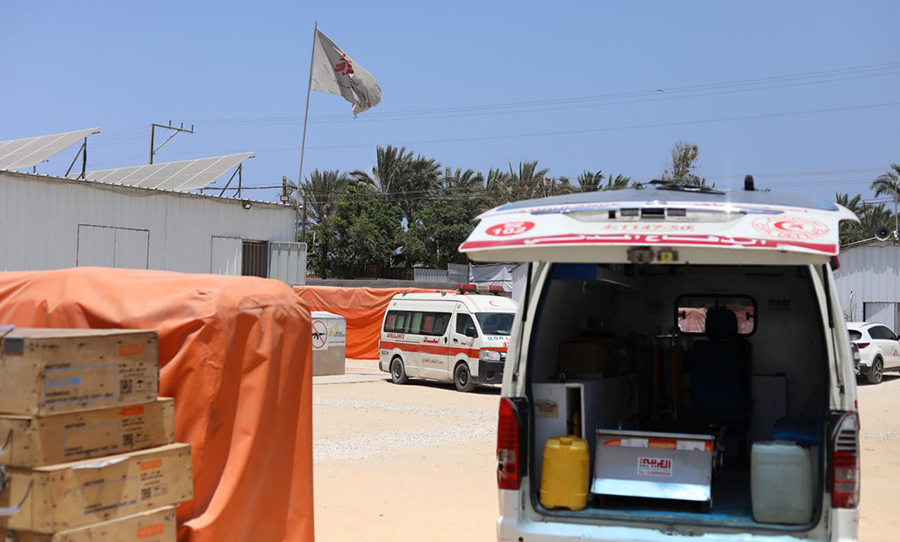
"Most Gazans do not currently know where to go to get aid and how safe it is there. We appreciate the increase in aid, but the situation is still catastrophic, and it’s still too soon to talk about an improvement.”
‘Increase risk of disease and death’
“The only way to describe the healthcare system in Gaza is catastrophic,” says Eve Charbonneau, Health Coordinator for the International Committee of the Red Cross.
“For months there has been little to no ability for people to easily access the continuum of medical care they need when injured or sick. Many, if not most, medical facilities have been damaged or have had to cease functioning because of a lack of supplies, evacuation orders, or a lack of personnel. There are ongoing concerns and struggles with electricity and fuel, both of which are critical to the functioning of healthcare facilities. It is challenging to replenish the medical equipment, materials, and consumables at the rate at which they are being used. We see this at the Red Cross Field Hospital, and we see this at other medical facilities,” she says.
Charbonneau is a registered nurse from Canada who has worked for the International Committee of the Red Cross for about 10 years, during which time she has seen war zones in almost every corner of the globe. In the last 18 months, she has been to Gaza at least every month or two, for weeks at a time.
“People in Gaza have struggled to find enough food, and enough variety of food,” she says. “Every day, parents wake up wondering how they will feed their children. Patients and their loved ones sit in hospitals wondering how they will receive enough calories to properly recover from their wounds or surgeries. Children come up to our staff, fatigued because they have not had enough to eat for too long. The already-weakened residents of Gaza need consistent and sufficient food supplies to avoid becoming more exposed to risks of disease, illness, and death.”
She adds that, “the vast majority of patients admitted to the field hospital in recent weeks say they were injured while trying to access food from distribution sites. Some, unfortunately and tragically, arrive at the hospital already dead; many others arrive with gunshot wounds. This points to the level of desperation in Gaza – people are so desperate that they are still going to distribution sites, knowing full well the risks. We see people admitted to the field hospital who are showing clear signs of malnutrition.”
According to her, the food shortage is also evident among the medical teams. “Staff at the field hospital tell us that there are Palestinian colleagues who are fainting from hunger even as they work to provide medical support to their communities, and we have seen staff lose weight – in some cases drastically – over the last months. The field hospital is limiting the size of meals provided to patients due to shortages, and because food is simply not readily available at any market.”
It appears that despite the change in aid policy, the damage from the previous policy will still be felt keenly.
“There is nowhere in Gaza that has not been impacted by the hostilities,” says Charbonneau, who ended her role this week.
“It also means people – of all ages – come in with wounds from explosions, from shrapnel, with severe burns, water-borne and skin diseases are on the rise because there are not enough functioning hygiene or sanitation systems. It also means babies are brought in with infections because their parents cannot get medicines for them.”




